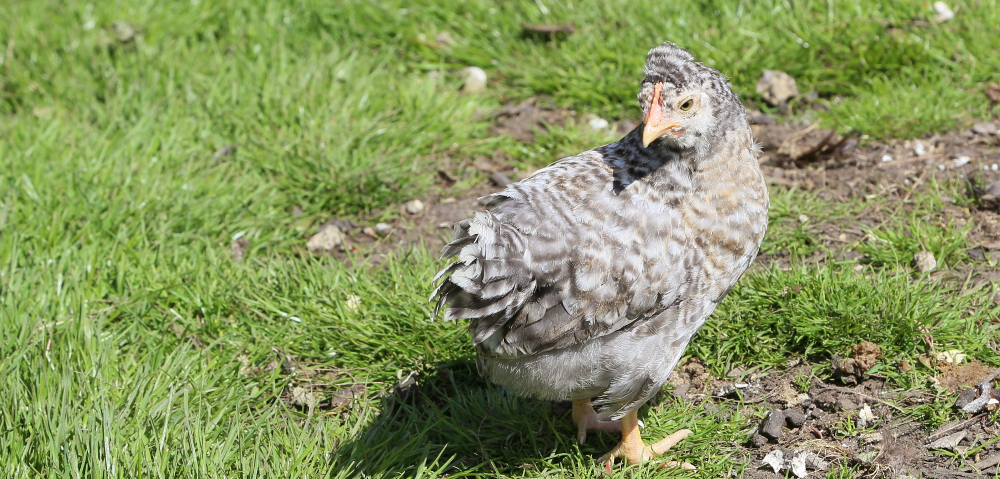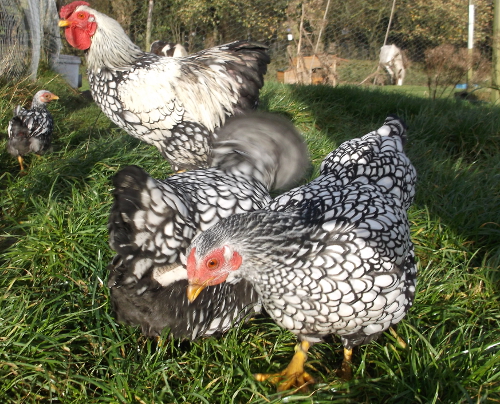Plants that are poisonous for chickens

Some plants are poisonous to chickens although they are generally quite savvy about what to eat and what to avoid.
Poultry in general and chickens in particular are foraging birds by nature and have a well developed sense of what is good for them and what is not. It is quite rare for a chicken to eat poisonous plants as they seem to have a well developed sense of smell.
Table of Contents
Prevention is far easier than cure. If in doubt, keep harmful plants away from your birds.
Simple tips to protect your poultry from poisonous plants:
- Be careful before free ranging birds in an ornamental garden.
- Have a clearly defined run and clip primary wing feathers if necessary.
- Grow some things especially for them like dandelions, lettuce or courgettes.
- Ex battery hens may need a bit more supervision and training.
- Make sure you know what you are feeding them, your chickens will likely eat whatever you present them with as you feed them all the time.
- If you are unsure then it is best avoided.
Which plants are poisonous for chickens?
What plants will kill your chickens - The poisonous plants list:
Anything mouldy – mould often contain mycotoxins which can be deadly and spores can be a problem.
All the green parts of the members of the nightshade family including potatoes, tomatoes, and eggplants. The Latin name for these plants is Solanaceae and they contain a compound called solanine which is toxic to chickens.
The exception to this is the plain ripe tomato but all the green parts of the plants should be avoided.
Below: It is best to control what your chickens eat however tempting it is to save money.
The compound can be broken down if the plants are cooked however. So any cooked potatoes or aubergines are generally OK to give to your chickens. If you are worried, it is better to just not feed these plants to your chickens.
Bear in mind some green leaves contain oxalic acid and whilst this won't kill them it may make the feel a bit crappy for a few days. So don't overdo the green leaves and let them forage for the grass is a better idea.
- Azaleas.
- Amaryillis.
- Bloodroot.
- Bull Nettle.
- Bracken.
- Bryony.
- Buttercup.
- Carelessweed.
- Castor Bean
- Cocklebur.
- Curly Dock.
- Curcubrit plants. All the green leaves and stems of all members of the curcubrit family, including, cucumber, melon, courgette. marrow and zucchini.
- Deadly Nightshade.
- Delphinium.
- Fern.
- Foxglove.
- Ground Ivy.
- Hemlock.
- Dropwort.
- Rhubarb – oxalic acid causes digestive discomfort in small dose and whilst is unlikely to be fatal to an adult bird may kill growers.
- Rhododendron.
- Avocado.
- Horse Chestnut.
- Horse Radish.
- Hyacinth.
- Hydrangea.
- Ivy.
- Laburnum (seed).
- Lantana.
- Lily of the Valley.
- Morning glory.
- All the green parts of all the Nightshade family including tomatoes, peppers and eggplant.
- St. Johns Wort.
- Tulip.
- Water Hemlock (Cicuta maculata L.)
- Yew.
- Horse chestnut.
- Acorns and oak leaves.
It is by no means exhaustive and I have not been able to verify whether they are all poisonous or if it is just old wives tales.
Free range chickens seem to avoid things that are not good for them.
Some are not fatal but are best avoided. I’m not going to test them on my chickens!
If plants are poison to humans then it is likely they are no good for your poultry.
Blue Green Algae found in water can be fatal so ensure water sources like ponds or water containers are clean and kept covered.
The Maybe not poisonous after-all list:
Plants that we have moved to the next list are the ‘maybe not dangerous’, in the same way curry plant is not a danger to humans but can make you feel unwell.
Chickens have fed on or been seen eating these plants and coming to no visible harm.
- Daffodil – I would still keep them away. Seems to be more of an issue with the bulb rather than the greenery.
- Elderberry - except the stalks and unripe berries - The berries contain a compound that causes diarrhoea in birds and the stalks an alkaloid poison.
- Lamb’s Quarters.
- Apple pips – contain cyanide but the fatal dose is over 1000 pips. I feed my birds apples in Autumn and they are just fine.
- Stinging nettles – the stings can causes rashes and swelling but chickens can eat stinging nettles if you pull them up and let them wilt in the sun for a few hours..
- Citrus – the jury is till out on this one but my hens never go anywhere near it.
Please contact us if you feel we have missed anything we will build a clearer picture over time.
Most plants are fine for chickens and some flowers can be encouraged in a chickens diet.
What other foods are poisonous to chickens?
Salty foodstuffs like human food leftovers. Salt has the same bad effects on chickens as humans. They do not naturally eat a lot of salt in their diet and it can poison them.
Caffeine is a massive and quick killer of poultry.
Chocolate or sweets. Theobromide in chocolate can kill easily and in small quantities. sugar messes with the calorie protein balance of the diet.
Dried raw beans contain hemagglutinin which can be toxic to your chickens. Cooked beans are fine.
Onions are not good for any pets and chickens are no exception.
Mouldy food should never be fed to chickens as the mould can cause illness and may be fatal. Overripe, wilted vegetables, or stale bread is all fine as long as mould is not present.
One problem comes with confinement, chickens may eat plants that are bad for them if they have nothing else to nibble at. Give your chickens plenty of access to fresh pasture with lots of grasses to eat and they are less likely to consume the plants that will hurt them.
Before you go stripping every last plant out of your garden or pasture please remember there are incredibly few cases of poisoning by plants in poultry. They are more likely to be hit intentionally or by rat poison or similar.
Below: This action shot of my free range Wyandotte bantams enjoying the sunshine on open grassland. Preparation of the pasture your birds spend their time on is a sure fire way to protect them.
Here is a list of some plants that are poisonous to chickens:
The list, based on what veterinarians have told me and I have picked out of old poultry books.
Other articles you might like :
Other toxic substances – what else isn’t good for your hens.

